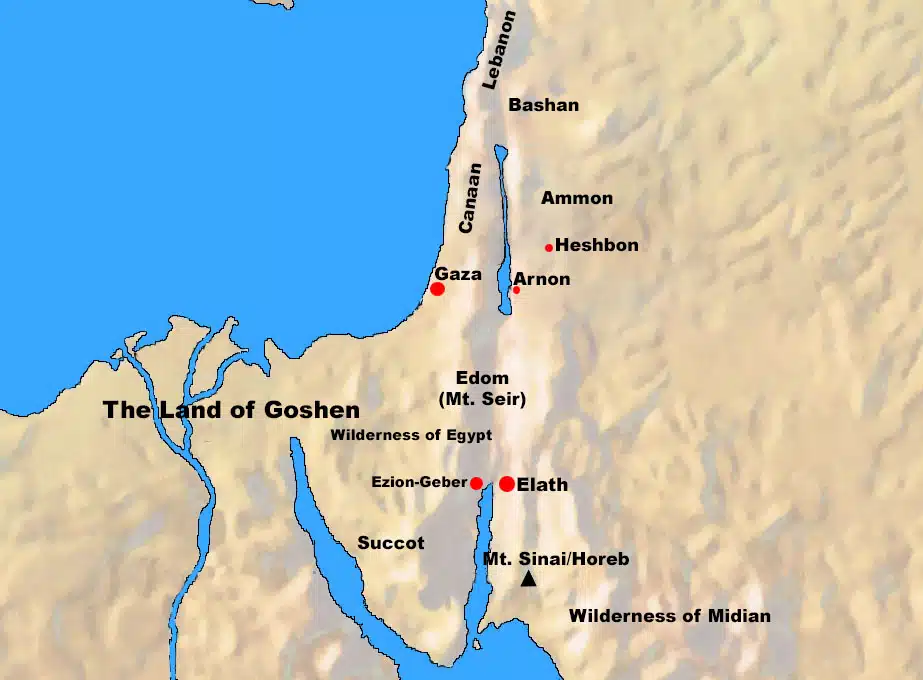Moses commands Israel to carefully observe the whole commandment of God in order to live and multiply, and go in and possess the Promised Land.
Deuteronomy 8:1 summarizes the essence of Moses’s teaching. He began with an appeal to Israel to observe the whole commandment of God, that they might receive the promised blessing. He said to them, “All the commandments that I am commanding you today you shall be careful to do.” The word commandment refers to the whole legal corpus of ordinances and statutes of God. Moses’s emphasis on all the commandments suggests that of the many commandments, not one was negotiable. Thus, if the Israelites tried to pick and choose which commandment to follow, they would not please their covenant partner (Yahweh) because He required complete obedience.
The call to total obedience is followed by positive consequences. The Israelites needed to obey their Suzerain (Ruler) God wholeheartedly in order that they might live and multiply in the Promised Land. The verb “to live” is used here in its most basic sense to mean “live physically,” that is, to occupy the land and remain in it. Thus, Moses told the Israelites that careful obedience to God’s precepts would allow them to live in Canaan, which was a precondition to receiving many of the promised blessings.
Failure to please God in the land would result in either Israel’s death or removal from the land. While being chosen as God’s own possession (Deut 7:6) was an act of grace, apart from any deeds of Israel, receiving the promised blessing required pleasing God through obedience. Moses’ description of the obedience God required was to observe the whole commandment of God, in order to secure the blessing of being able to live and multiply, and go in and possess the Promised Land.
The verb translated “to multiply” refers to numerical growth, a form of blessing that was common in the ancient Near East. In fact, numerical growth was one of the elements of God’s promises to the patriarchs (Genesis 12, 15, and 26). Obedience to the entire legal corpus of God would fulfill God’s requirement to receive the promised blessing for family, property, and livestock to grow exceedingly.
The Israelites were to obey the Suzerain God in order that they might go in and possess the land. The gift of land was before Israel, but they needed to go in and possess it. God had unconditionally granted the land to Abraham and his descendants (Genesis 15:8-18), but possessing what was given required obedience. To possess something is to inherit it; that is, to have all power and authority to claim it as one’s belonging. The land of Canaan, which was previously occupied by other nations, would become Israel’s possession. However, the Suzerain (Ruler) God, the giver of the land, set the requirements for possessing the gift. Israel (as vassals) must obey the LORD their Suzerain God in order to possess the land which He swore to give to their fathers. The prior generation had failed to obey their Suzerain God, and had lost their inheritance, their opportunity to possess their possession (Hebrews 3:7-11).
God gave the land of Canaan to Abraham and his “descendants forever” (Genesis 13:15). This was an unconditional and irrevocable promise (Romans 11:29). God chose Abraham’s descendants (Israel) to be His own possession (Exodus 19:4-6) and they were the ones who would inherit the land and live in it. However, to enjoy the benefits of the land and to remain in it, the Israelites needed to conform themselves to the standards of the Suzerain God who granted the land. Therefore, it was imperative for Moses (as Israel’s leader) to encourage the people to remain loyal and obedient to the LORD, and observe the whole commandment of God.
Biblical Text
All the commandments that I am commanding you today you shall be careful to do, that you may live and multiply, and go in and possess the land which the Lord swore to give to your forefathers.
Check out our other commentaries:
-
Exodus 23:10-13 meaning
The LORD expands on the concept of the Sabbath to include a Sabbath year. The Israelites were to be very diligent in keeping the Sabbath...... -
John 18:25-27 meaning
Peter Denies Knowing Jesus Two More Times. Peter’s second and third denials of Jesus occur during the Lord’s religious trial held at Caiaphas’s house. ...... -
Zechariah 2:6-13 meaning
Zechariah urges the Hebrew exiles to flee Babylonia because God will judge the nations that plundered Jerusalem....... -
Matthew 21:8-11 meaning
Jesus simultaneously enters the city of Jerusalem triumphantly as the Messiah and as the Passover Lamb. Crowds of people shout “Hosanna” and Messianic lines from...... -
Exodus 20:22-26 meaning
Having displayed His holiness in sight of all the people, the LORD then defined the proper format for worship. ......




